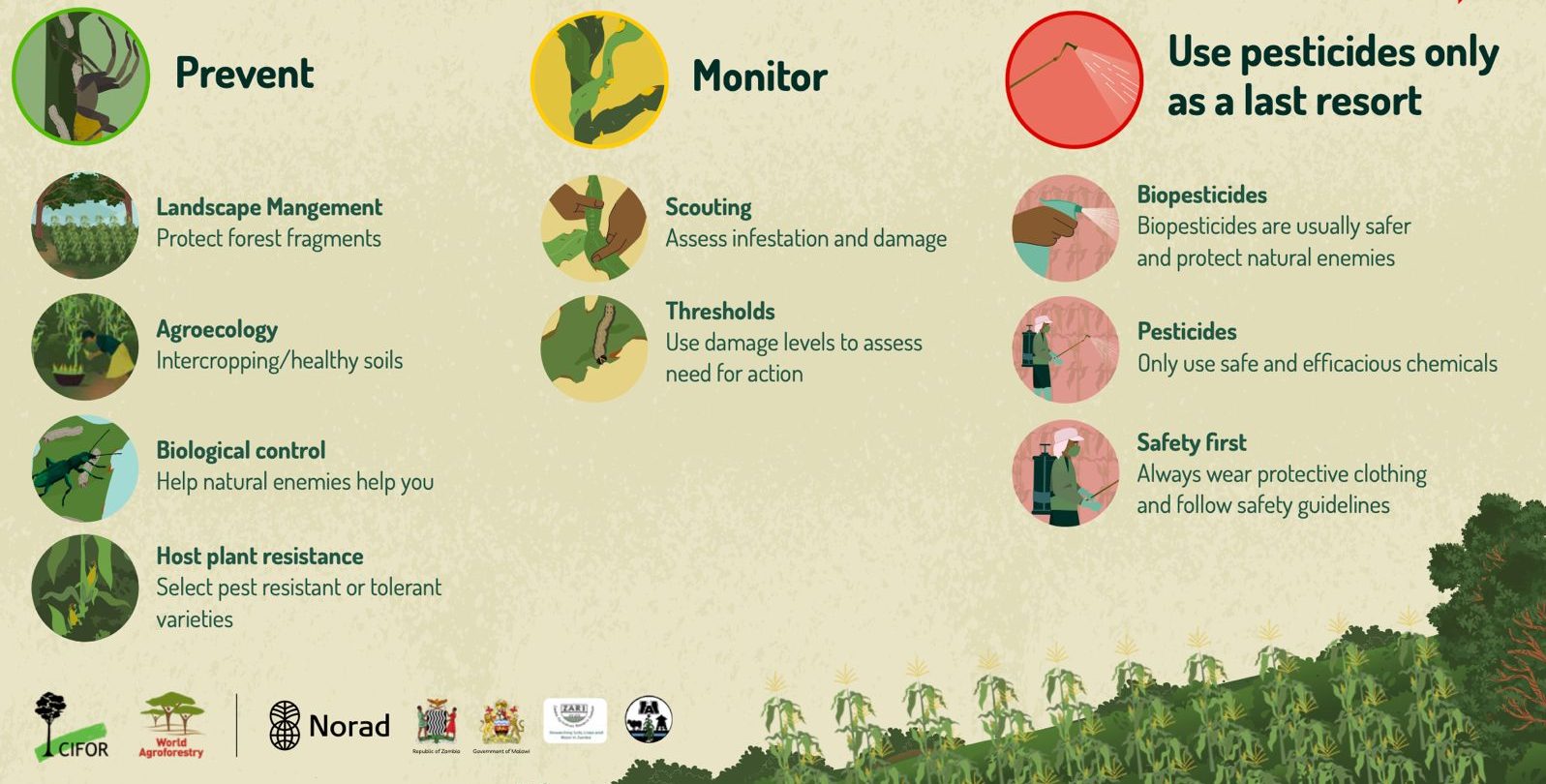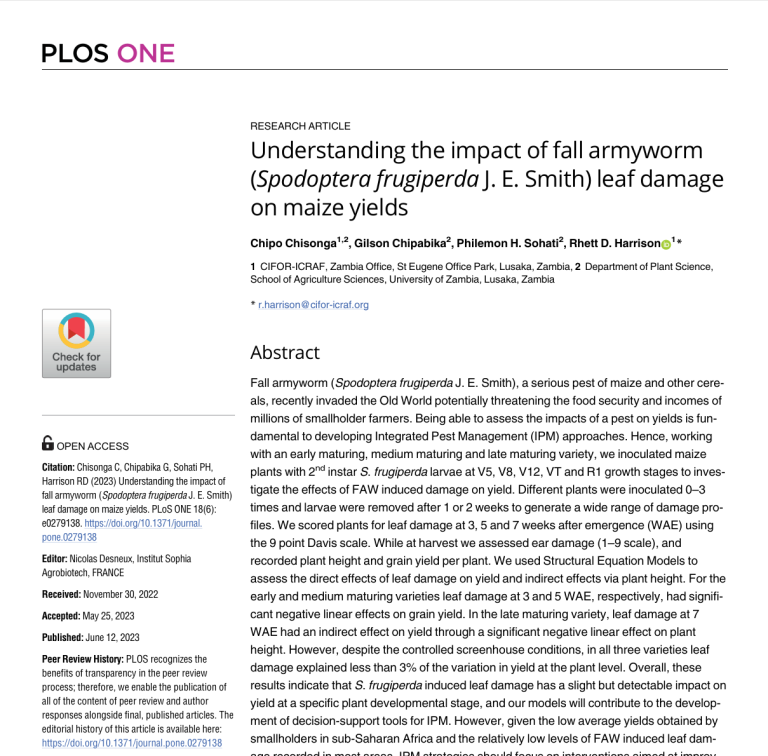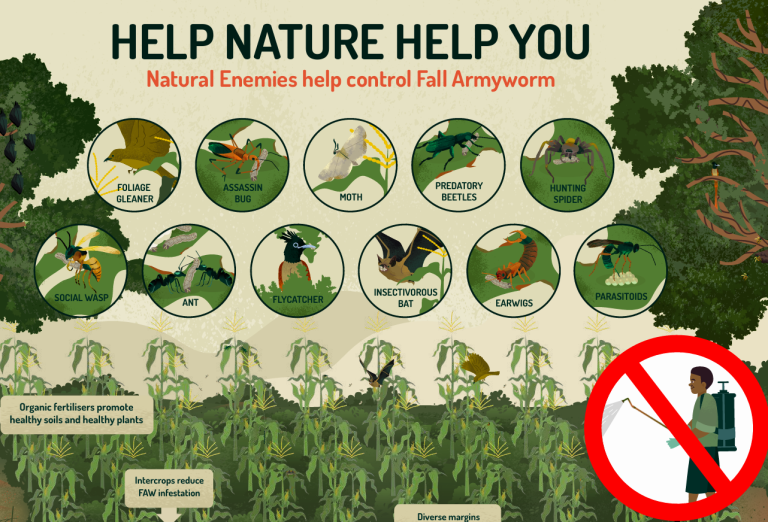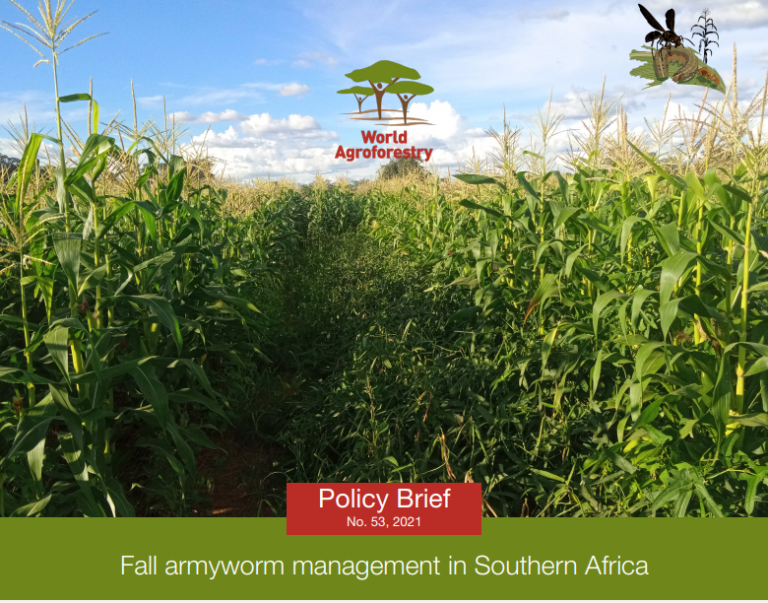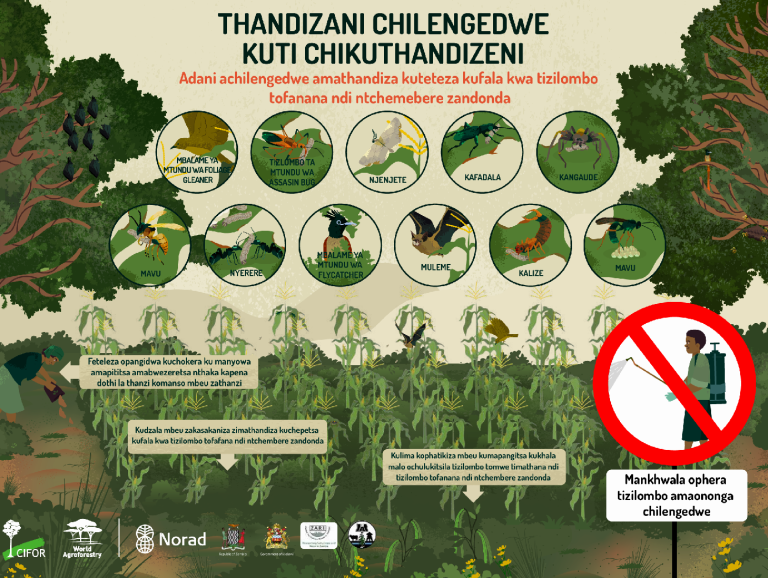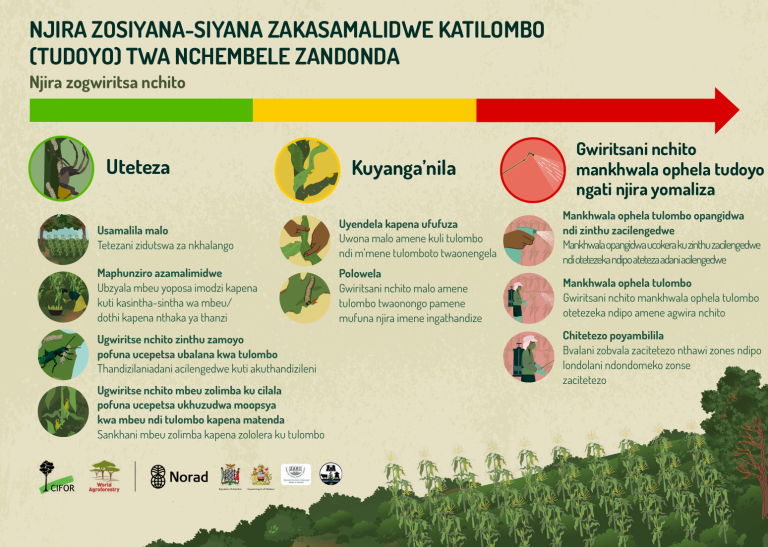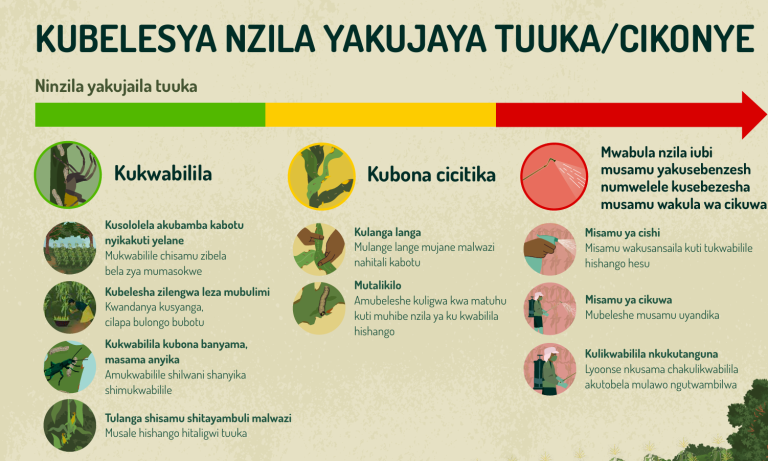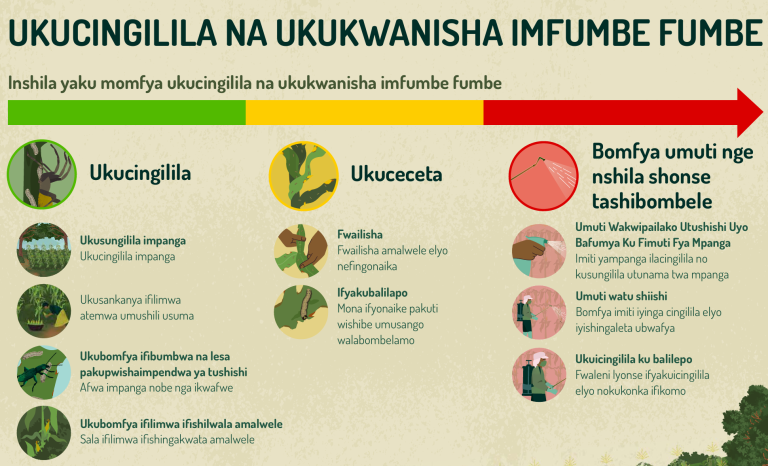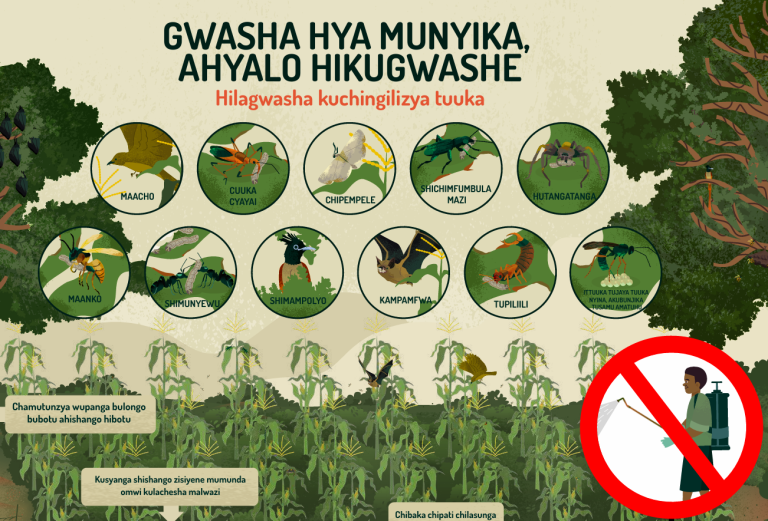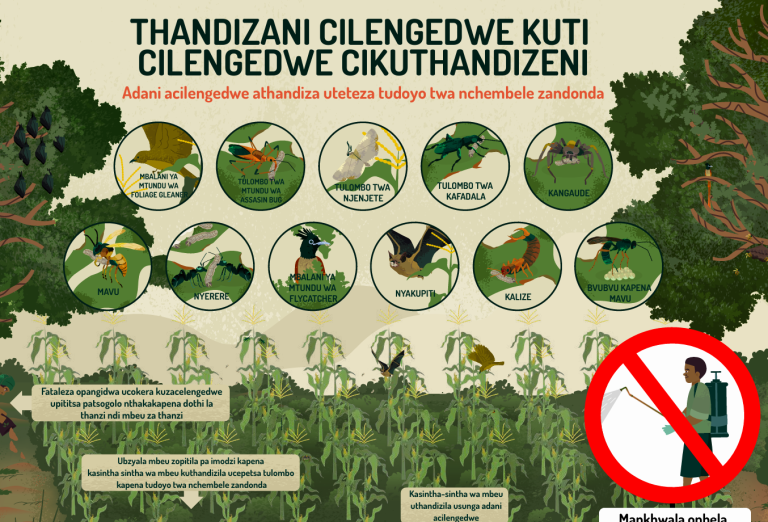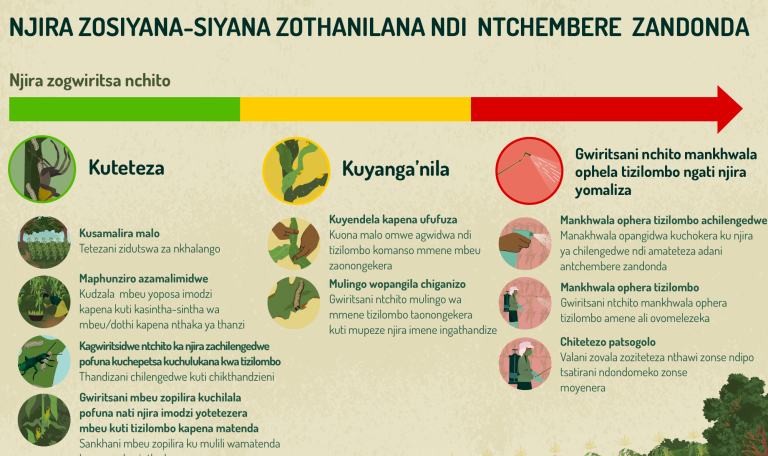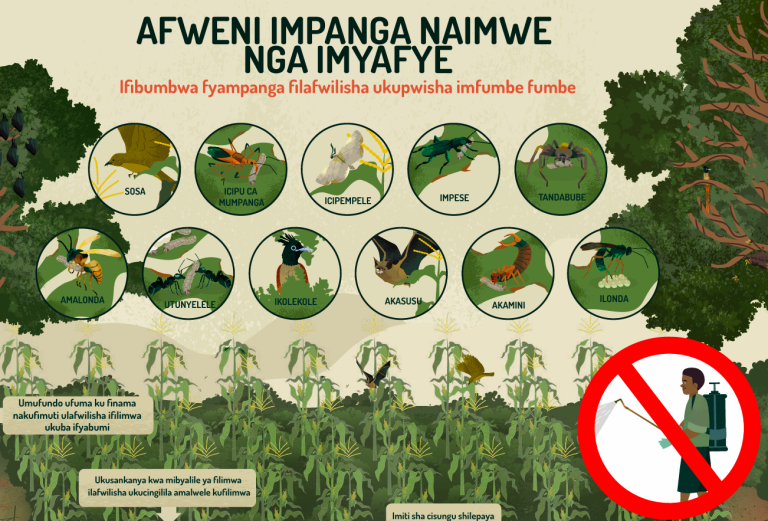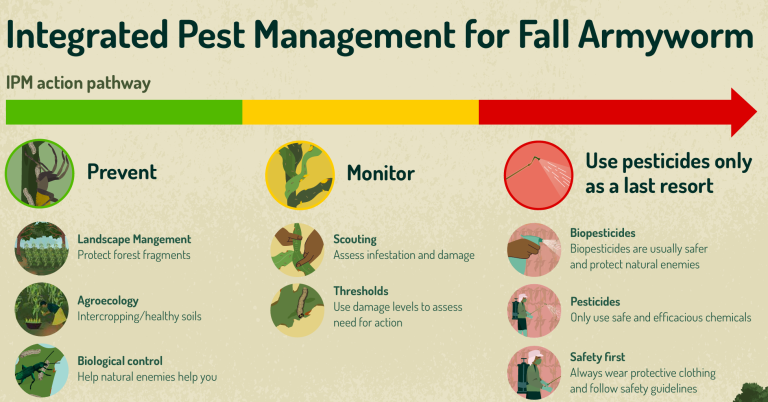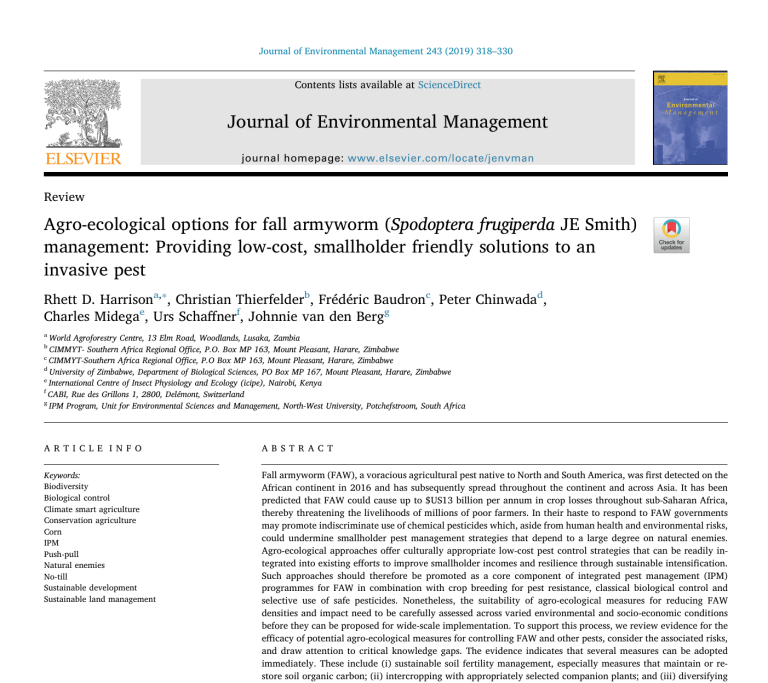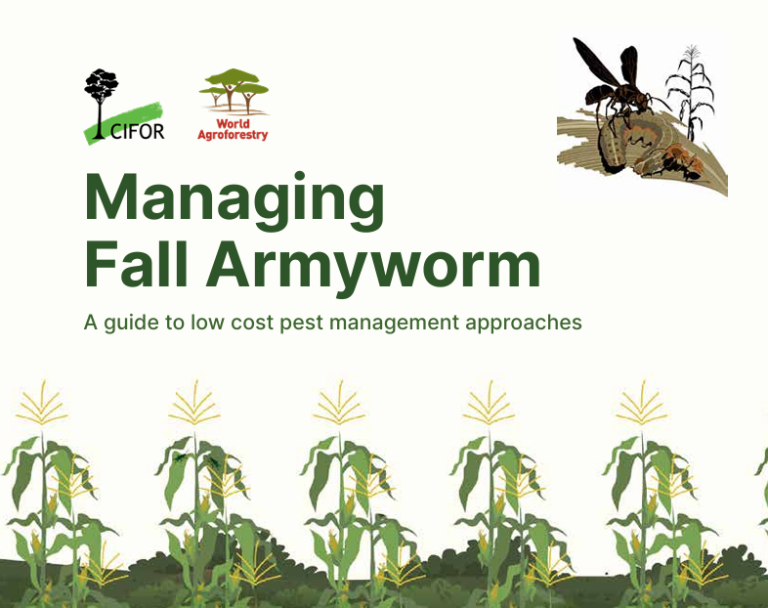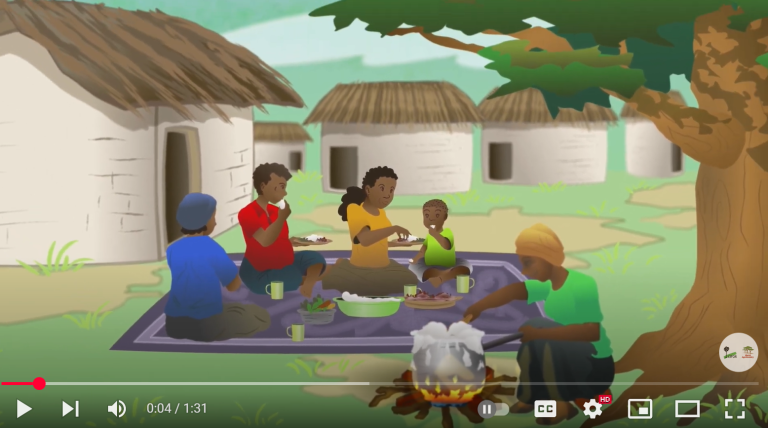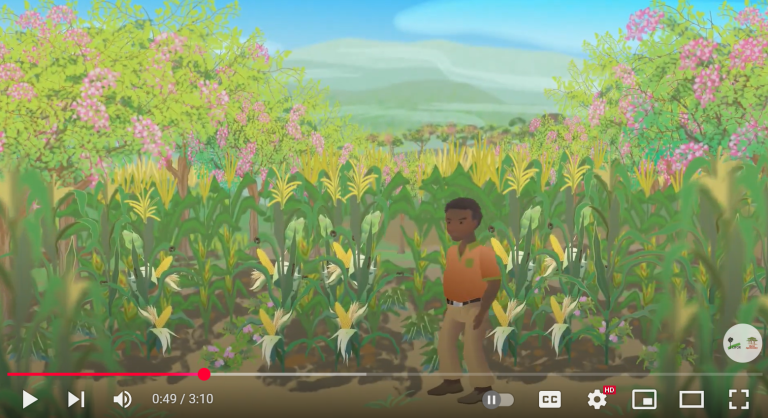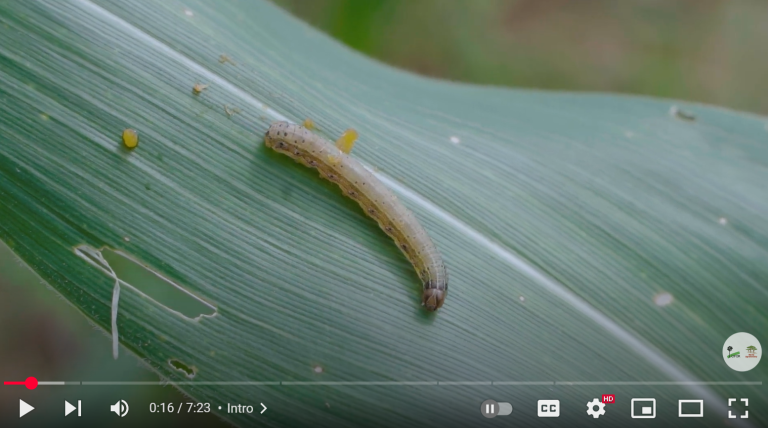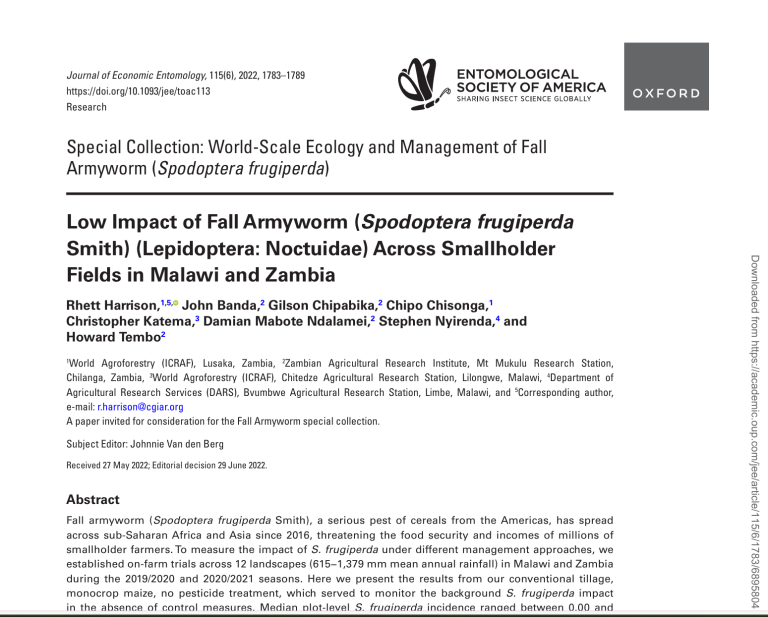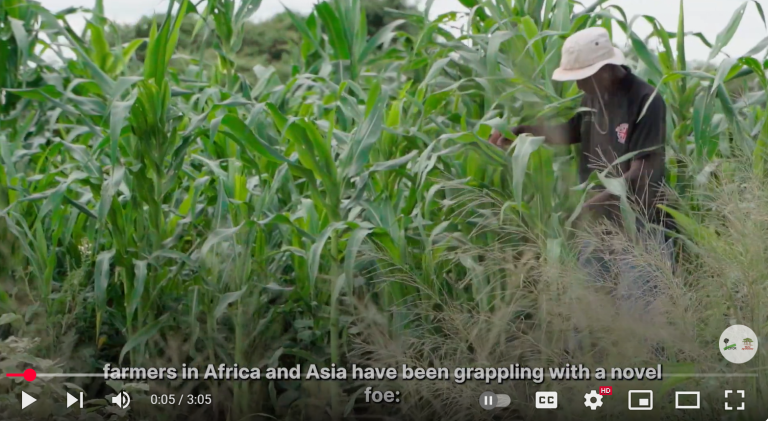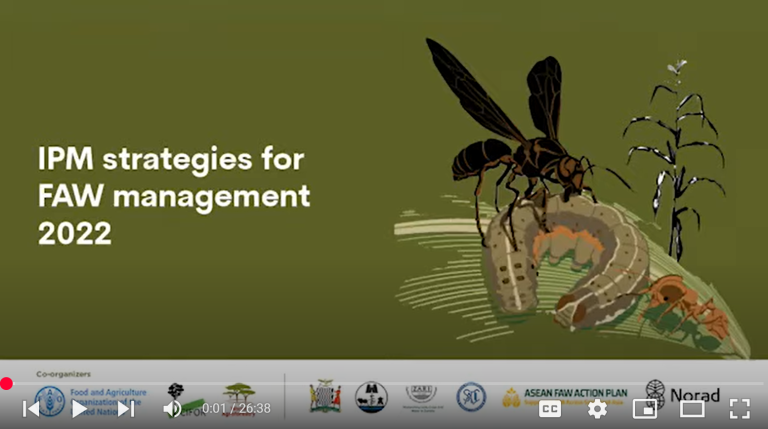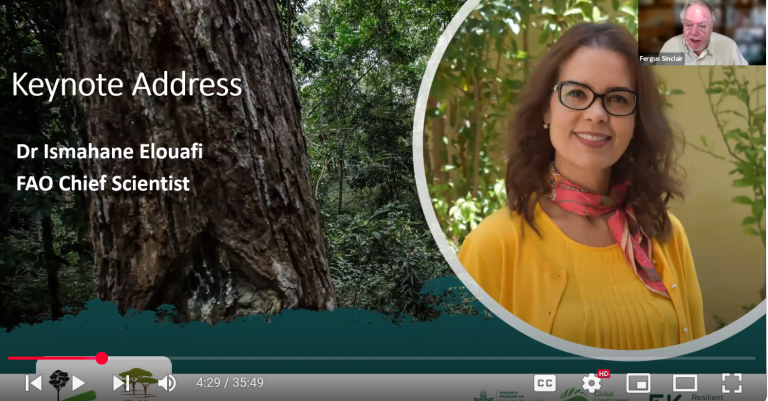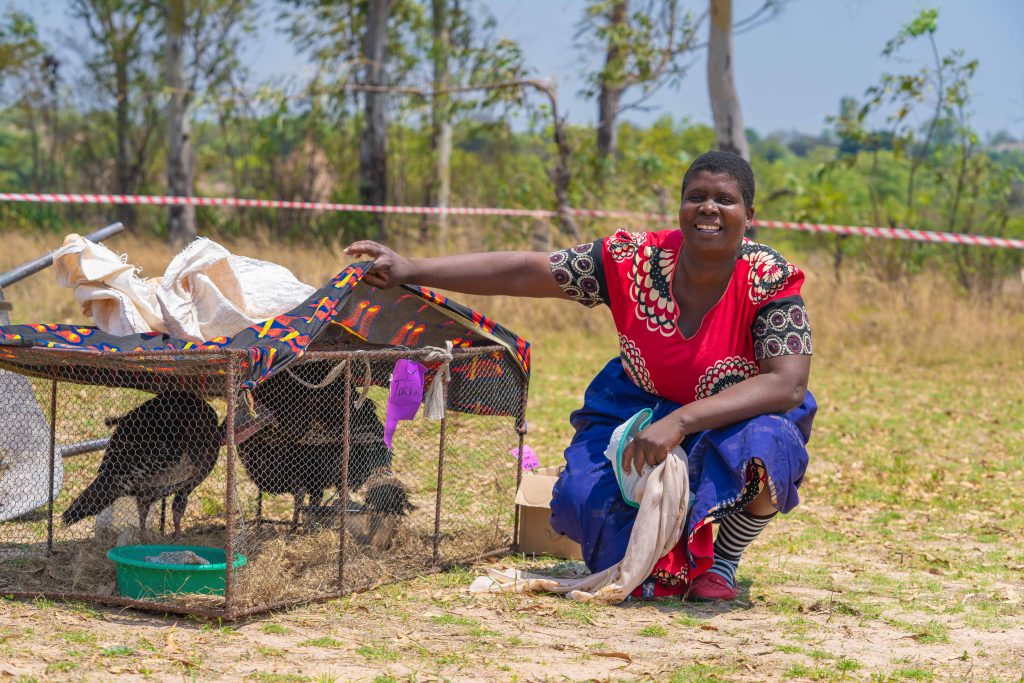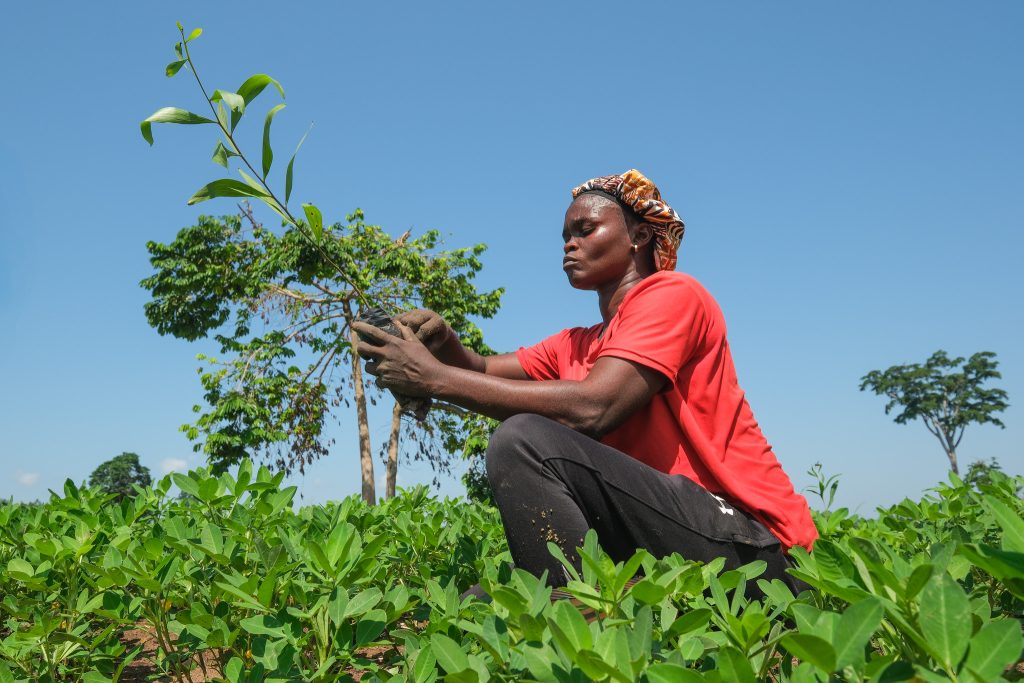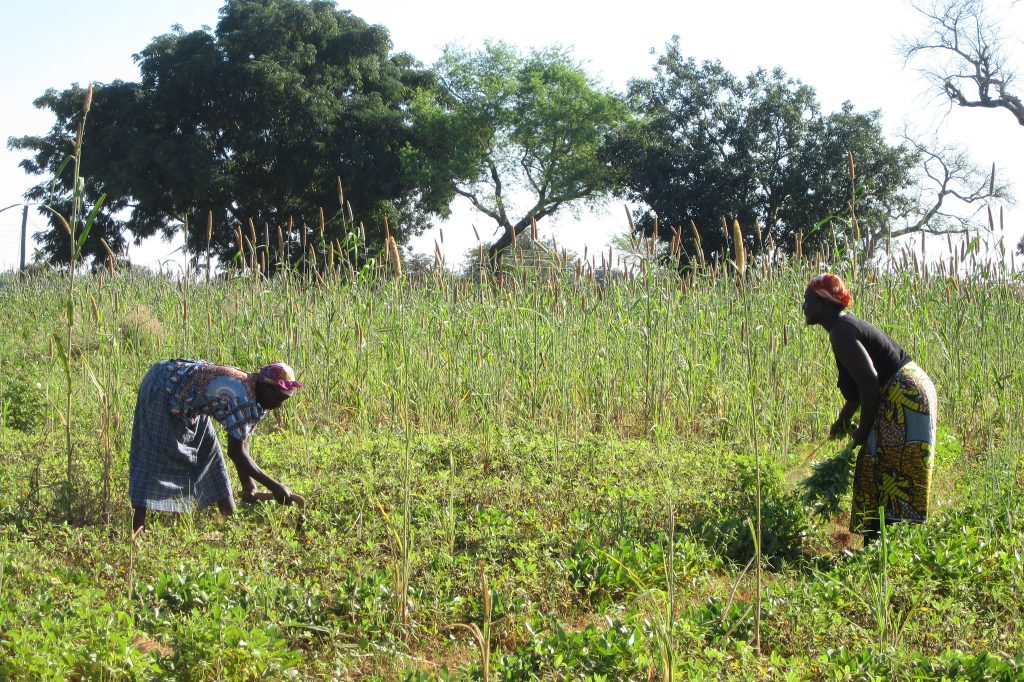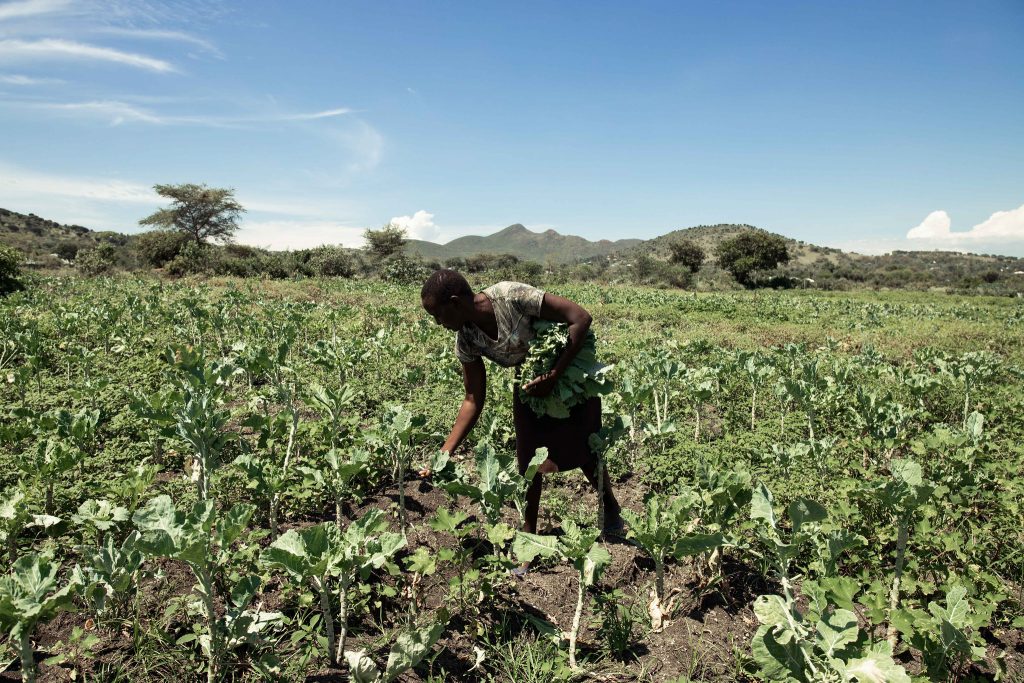The Fall Armyworm project ran from 2018 to 2023, starting within the Forests Trees and Agroforestry research project of the CGIAR (CRP). This project evaluated the agronomic and socio-economic viability of agroecological options for pest control across multiple tropical developing countries in Africa, Asia and Latin America. Working with multiple partners we applied standardized protocols and data collection tools.
Aim
The project aimed to better understand the effectiveness of agroecological interventions for pest management across a range of environmental and socio-economic contexts, through: A globally coordinated trial of the effects of agroecological interventions on pest populations, crop damage and yield loss, and understanding of smallholder pest management strategies through farm and household surveys.
Project Scope
The project focused on Fall Armyworm (Spodoptera frugiperda Smith), a pest from the Americas that has in recent times spread across Africa and Asia, but also collected information on other co-occurring pests and diseases, and explored agroecological pest management’s potential integration into smallholder farming systems.
Media
To learn more about the project’s outputs, such as policy documents, animations, conference recordings and more, please see the knowledge products section below.
Global Trial on Agroecological Approaches to Pest Management
Can we manage agricultural pests in more planet- and person-friendly ways?
Traditionally, farmers have benefited from the pest control services of organisms living in and around their fields. But industrial agriculture has replaced these with pesticide use, which eliminates beneficial organisms alongside harmful ones, sets up an ‘arms race’ between chemicals and evolving pest resistance, and increases the cost of pest control to the farmer – as well as having broader impacts for biodiversity and human health.
Agroecological approaches to pest control, which work by boosting the role of beneficial organisms, offer a compelling alternative, which can work well in tandem with plant breeding, biological control and judicious use of safer pesticides.
Modality
The research process, coordinated by CIFOR-ICRAF, included: Results were disseminated through scientific publications, policy briefs and events. See knowledge products below.
Results were disseminated through scientific publications, policy briefs and events. See knowledge products below.
Case Studies
Trial sites were selected from across Africa, Asia and Latin America via competitive calls, and included both on-farm and on-station trial elements.
Donors
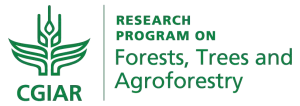

The FALL ARMYWORM project was funded by the Forest, Trees and Agroforestry Program of CGIAR and the Norwegian Agency for Development Cooperation (NORAD). It is part of the Pest & Disease Control domain.

